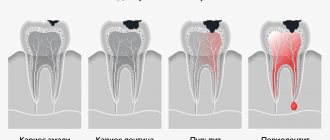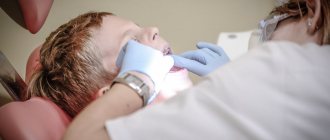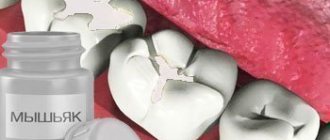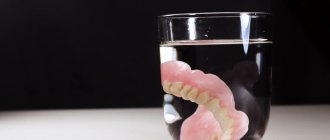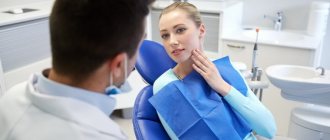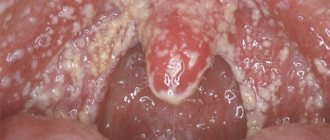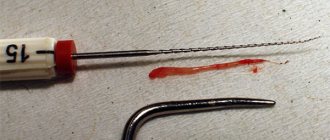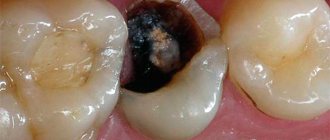Imagine a mouth with rotten teeth and the smell that comes from them, it is not difficult to guess how repulsive and unpleasant a person with such a problem looks. Bad teeth greatly spoil the impression of a person’s appearance, prevent him from communicating normally with other people, and disrupt his psychological state.
However, this problem is not only aesthetic. Dentists warn that rotten teeth cause arthrosis, polyarthritis, and disrupt the condition of the skeletal system. The products of decay and the microbes that provoke them are carried throughout the body with saliva and blood. A person begins to have problems with organs that, at first glance, have nothing to do with teeth. The infection gradually affects the bone tissue and can reach the brain.
What happens if you ignore the body’s signals, drown out the pain with pills, mask the smell with air fresheners? It may be possible to hide the negative symptoms for a while. However, as they accumulate, they will lead to the appearance of other and not only dental problems.
Causes of tooth decay. How to stop him?
To provide adequate treatment, the doctor must first determine the cause of the disease. Otherwise, the measures may turn out to be useless, the process will continue to develop. The causes of tooth decay are external and internal factors. Despite the fact that enamel is considered one of the most durable materials in the body, under unfavorable conditions it quickly deteriorates. As a result, microbes gain unhindered access to the inner, less protected part of the tooth.
To cope with this problem at the initial stage, one visit to the dentist is usually enough. He clears the cavity of affected tissue and closes it with a filling. However, simple neglect of their health and fear of the dental office make people postpone the visit. The result is deterioration of the teeth and their loss.
How to protect yourself from complications of dental diseases
To avoid any complications, it is best to prevent the diseases themselves. There is nothing complicated here:
- 1. Brushing your teeth twice daily. In this case, it is necessary to change your toothbrush in a timely manner (usually once every three months) and carefully choose toothpaste, taking into account the doctor’s recommendations;
- 2. Regular visits to the dentist. If you go to the doctor every six months, you will be able to either completely avoid caries, or cure it at the earliest stage - quickly and without any discomfort;
- 3. If a tooth has been removed or deformed (part of it has broken off, a filling has fallen out), you also need the help of a doctor. Such violations spoil the bite, and the load on neighboring teeth will increase. They will become more vulnerable to adverse effects.
Of course, to avoid complications, you should immediately consult a specialist as soon as a pathological process or painful sensations are noticed.
When is a person to blame for having bad teeth?
Experts identify a number of causes of tooth decay, for which the patient himself is to blame. Knowing them, you can take timely measures to prevent the development of the disease. These reasons include:
- Smoking. Components released from tobacco disrupt metabolic processes in dental tissues. Due to this, their ability to resist adverse effects is sharply reduced.
- Alcohol, drugs. They negatively affect the functioning of the entire body, impair its protective functions and ability to recover.
- Poor nutrition. Lack of minerals and vitamins in food leads to weakening of the enamel. An excess of sweets, sour fruits, and berries contributes to the destruction of enamel.
- Unhealthy Lifestyle. Lack of physical activity, constant presence in dusty rooms, abuse of fatty, fried foods reduces the body's protective functions.
In addition, lack of or improper oral hygiene contributes to the formation of plaque. It becomes a source of food for microorganisms that gradually destroy teeth.
Proper nutrition is the key to healthy teeth and the whole body!
Another important rule is healthy eating. It’s not for nothing that they say: we are what we eat. As already mentioned, tooth enamel consists of minerals. And teeth need constant replenishment of these substances. If there is a lack of minerals and vitamins in the body, the teeth will lack the nutrition to form enamel. Thus, teeth cannot “protect themselves” from harmful bacteria.
In addition to the presence of microelements, teeth need the “right food”. Hard vegetables are so beneficial for dental health: carrots, beets, cucumbers, apples. Moreover, it is necessary to allow the jaw to chew raw fresh vegetables and fruits, and not cooked and ground foods. It is precisely because modern civilization has switched to highly processed, refined food that people’s teeth began to deteriorate at a fairly early age. It is important that the food provides chewing stress to the jaw.
In addition, raw vegetables and fruits, which we can provide at the end of meals, will help get rid of food debris in the teeth. It is also very important to eat berries, greens, and dairy products.
Negative factors beyond the patient's control
If a person does not smoke, engages in debate, and watches his diet, why do his teeth begin to rot? There may be several reasons for this:
- Bad ecology. Polluted air, poor quality water, an excess of some and a lack of other important components. Fluoride deficiency is often cited as the cause of dental problems.
- Heredity. If the parents had bad teeth or the mother did not visit the dentist during pregnancy, children often experience similar problems.
- Physiological features. Hormonal imbalance in adolescents during the growth period, in pregnant and lactating mothers.
Tooth decay is often a consequence of other diseases. Problems with periodontal tissues - gingivitis, periodontitis, periodontal disease - lead to the development of caries and cause tooth loss. If a purulent cyst forms near the root, the infection quickly spreads to the tooth. Often the deterioration of teeth is caused by diseases of the stomach, intestines, and thyroid gland.
Healthy immunity - healthy teeth
Observations show that human immunity has a direct impact on dental health. This is due to the fact that weakened human immunity is not able to provide adequate resistance to the action of microbes and harmful bacteria that have a harmful effect on the entire state of the body, including the health of the teeth and oral cavity.
Reduced immunity is the cause of the development of a number of dental diseases: gingivitis (inflammation of the gums), periodontitis (inflammation of the tissues surrounding the tooth), glossitis (inflammation of the tongue), stomatitis (inflammation of the oral mucosa), etc.
By taking care of strengthening your immune system, you are also taking care of the health of your teeth.
Characteristic symptoms and stages of disease development
Dental problems manifest themselves in different ways. It depends on the degree of damage, the sensitivity of the body, and the number of problem areas. Tooth decay does not occur in just one day.
Dentists distinguish several characteristic stages, which are characterized by certain symptoms:
- Unpleasant smell. At first it is not too noticeable. Gradually, even during a conversation, the interlocutor feels a putrid “aroma”. Its source is pathogenic bacteria. They inhabit plaque that forms at the point of contact between the gum and tooth.
- Stains on the enamel. This is the next stage of the disease, when the damage spreads deeper and damages the enamel.
- Black areas. If they are located on the root, it is very difficult to notice them. To clarify the extent of the damage, an x-ray is taken.
- Formation of the cavity. A cavity forms in place of the black spot. Through it, food debris gets to the inside of the tooth. The tooth actively “signals” about the problem with painful sensations, reaction to hot and cold.
- Pulpitis develops. By not consulting a doctor in time, the patient allows inflammation to reach the pulp. Soft tissues containing blood vessels and nerves undergo rotting. It is accompanied by sharp, unbearable pain.
The decay process ends in different ways. If it starts from the top of the tooth, it gradually spreads to the root. After the nerve dies, the pain intensity decreases. If decay affects the root first, the tooth may fall out or have to be removed.
What to do if your teeth start to crumble badly
The first thing you need to do is make an appointment with a dentist and come to the appointment. The doctor will conduct an in-person examination and determine the cause of the pathology. Further actions will directly depend on the provoking factor.
If it's all about caries, then it will be filled. To do this, the hole will be closed with modern filling material , which will qualitatively strengthen the walls of the crown. The patient will be told how to properly care for their oral cavity to avoid illness in the future.
If the defect occurs due to mineral deficiency, remineralization is carried out. During the procedure, the crown is treated with a special composition enriched with calcium, phosphorus and other useful compounds. Afterwards, a composite or ceramic veneer is installed to hide the chip.
If you have fluorosis, you should stop using water with a high fluoride content. Existing irregularities can be corrected using dental crowns or inlays. For minor damage, veneers and lumineers will help.
Why do teeth rot at the gums?
Caries near the gums and on visible parts of the tooth are no different.
The reasons for its occurrence are the same, but near the gums it is more difficult to identify and treat the disease. Therefore, patients usually consult a doctor at the stage of progressive pulpitis. Timely detection helps prevent the development of caries in the gingival region. To do this, you need to periodically visit the dentist, who will correctly assess the condition of the enamel and detect the development of caries in time. Experts call gum disease a common cause of its occurrence. Food debris that accumulates in the gum pocket promotes the development of bacteria. In addition, the disease can be caused by an incorrectly installed crown, poor hygiene, or changes in the composition of saliva.
Necessary prevention
Beyond heredity, preventative measures to maintain dental health are everyone’s first priority. No matter how smooth and snow-white the teeth are, insufficient hygienic care leads to tooth loss.
When teeth are forming in the womb, the following are likely to occur:
- hypoplasia (underdevelopment) of enamel;
- hyperplasia (excessive formation) of enamel;
- fluorosis (intoxication with fluoride salts);
- drug-induced tissue development disorders;
- hereditary disorders.
These pathologies are predetermined, because the lifestyle of a pregnant woman leads to their appearance. In all other cases, preventive measures and hygiene will keep teeth healthy, even with bad hereditary factors.
What to do with a tooth that has rotted to the root?
If the root has rotted and treatment measures do not produce results, the tooth has to be removed. Loss of the upper part leads to the development of pathologies:
- the appearance of a cyst at the root apex;
- fracture or dislocation of the root;
- injury to the gums from a splinter;
- periodontal diseases.
A rotten root becomes a source of infection that spreads to nearby tissues.
In any case, the doctor chooses the treatment. If there is a high probability of negative consequences, removal will be carried out. To avoid this, it is recommended not to skip periodic dental checkups.
The most dangerous complications of caries
- Pulpitis
A sign of pulpitis is a sharp, acute pain radiating to the ear or jaw. It can occur at any time without connection with any specific stimuli. It is not always possible to determine which tooth is causing it.
- Periodontitis
The disease develops due to the lack of treatment for pulpitis. The problem is localized at the apex of the root of the affected tooth.
A child’s teeth are rotting: to treat or not to treat?
Rotten teeth are in most cases a problem for adults. However, this process can affect baby teeth. Moreover, the path from the appearance of a small spot to a severe stage passes very quickly. The reasons for this phenomenon are the same as in adults. At the same time, we can identify characteristic factors that have a negative impact on children’s teeth:
- excessive love for sweets;
- insufficient oral hygiene;
- mother's dental problems during pregnancy.
It is impossible to stop rotting at home. You must contact your dentist immediately.
Teeth deteriorate with age
Unfortunately, we can safely say that with age, the condition of a person’s teeth deteriorates. In other words, this is how problems begin with all organs of the body, without exception. Simply put, teeth deteriorate because “they have reached the end of their lifespan.” Hence the conclusion: the more attention you paid to your teeth throughout your life, the better their condition will be in adulthood and old age.
Of course, even in adulthood it is not too late to take care of your dental health. The advice is absolutely the same as for young people. The only difference is to take a more careful approach to choosing toothpaste, preventing oral diseases, and your diet.
Caries on baby teeth
As a result of long-term research, scientists were able to identify the main cause of caries in baby teeth. It becomes: microorganisms transmitted to the child from the mother. Streptococcus gets to the baby through a kiss, through a pacifier licked by the mother, or shared cutlery. Microbes come from other people through these same routes. When teething, babies are especially vulnerable to streptococcus. In addition, lack of oral hygiene, poor diet, and the composition of saliva have a negative impact.
Dentists point out that regular use of baby formulas from a bottle with a high carbohydrate content creates ideal conditions for the development of bacteria. Getting your baby used to a cup and rinsing his mouth after eating helps reduce their negative effects.
previous post
Pin in a tooth: types and advantages of design
next post
Stages of caries
- The appearance of a stain - the enamel changes color. It's still hard, but the process is already underway. A doctor can detect the spot. It is important to come for a preventive examination on time.
- Superficial caries – demineralization of enamel. The appearance of discomfort when eating hot, cold or sweet foods. At this stage, the enamel can be strengthened.
- Damage to dentin. Painful sensations increase and become longer lasting. The carious area grows and deepens. A cavity appears in the tooth in which food particles remain. A favorable environment is created for the growth of bacteria. Pulpitis may develop.
- Deep caries. Pulp degeneration occurs and periodontitis occurs. You can lose a tooth or undergo nerve removal. At this stage, the patient experiences severe pain.
Bite and headache
There are many causes of headaches. One of them is the condition of the temporomandibular joint, which is disrupted due to the formation of malocclusion. The upper jaw completes its development quite early. The bones that form it stop growing by the age of 16. The lower one increases in size for about 5 more years. This is accompanied by a change in the position of the head and disc of the lower jaw joint.
In the area of the temporomandibular joint there are a large number of vessels and nerves that are compressed when the head is displaced. Also, changing the position of the lower jaw leads to increased muscle tone in the lower third of the face and neck. All this together becomes the background for the development of migraines and dizziness.
